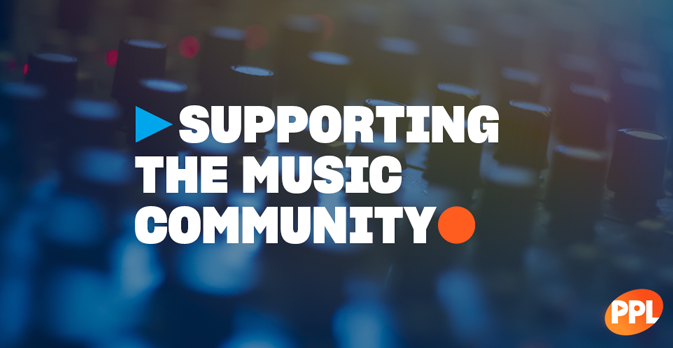PPL Pledges £700,000 To Music Industry Hardship Funds
The music licensing company will donate to Funds established by Help Musicians, The Musicians’ Union and AIM

Music licensing company PPL has today announced it is pledging £700,000 to three of the music industry’s hardship funds set up as a result of the Coronavirus pandemic: the Help Musicians Coronavirus Financial Hardship Funds (£500,000), the Musicians’ Union Coronavirus Hardship Fund (£100,000), and the AIM COVID-19 Crisis Fund (£100,000).
This additional measure to support the music community follows PPL’s recent quarterly payment to 26,000 performers and recording rightsholders of £87.6 million on 31 March.
The Help Musicians Coronavirus Financial Hardship Fund, which in its first phase provides individual grants of £500, offers support to alleviate some of the immediate financial pressures being faced by professional musicians. Help Musicians initially made available £5 million for 10,000 applicants, has received over 17,000 applications and continues to welcome donations from companies across the music industry. PPL joins Amazon Music, Arts Council England, the Royal Society of Musicians and Spotify in donating to the fund. More information on the fund can be found here.
The Musicians’ Union Coronavirus Hardship Fund is offering grants of £200 to members of the Union experiencing pressing and genuine hardship from loss of work due to the pandemic. Full details on the Fund’s eligibility criteria and how to apply can be found here on the organisation’s website.
The AIM COVID-19 Crisis Fund, launched in early April, is aimed at contractors and freelance workers in the independent music industry whose source of income has been severed without warning due to lost work in April and May. It is open to any contractor due to work with new and developing artists currently signed to AIM member labels who has lost committed income because of cancelled projects and who does not qualify for other music industry hardship funds on offer. This critical part of the music industry ecosystem includes tour crews, studio producers, mixing engineers, radio pluggers, graphic designers, stylists, photographers, and publicists. Full details can be found here.
Commenting on PPL’s donation to the Funds, PPL Chief Executive Officer Peter Leathem said,
“At PPL, we recognise the role of these Hardship Funds in providing a lifeline to those in the music industry who have been most impacted by the current crisis and we are delighted to be able to contribute to the funds established by Help Musicians, The Musicians’ Union and AIM to ensure financial support reaches those in need. This funding is vital for those who have lost their regular means of income and find it challenging to sustain their livelihood.”
Help Musicians’ Chief Executive James Ainscough said,
“We gratefully welcome the financial contribution and continued support of PPL to Help Musicians Coronavirus Financial Hardship funding. Demand for financial support has been overwhelming and we are seeing first-hand how the monies are supporting the many thousands in the music community who desperately need it. We are grateful to all of those who have responded to our plea for donations and this latest contribution from PPL will significantly boost our ability to help musicians.”
General Secretary of the Musicians’ Union Horace Trubridge added,
“The Musicians’ Union has been working around the clock to provide much-needed support and advice to its membership. PPL’s donation to our Hardship Fund will enable us to reach even more musicians who are struggling through these challenging times. Never has there been a more important time to work together to safeguard those who make the UK’s music sector as strong and successful as it is.”
Welcoming the decision, AIM Chief Executive Paul Pacifico said,
“The launch of the AIM COVID-19 Crisis Fund was a call to arms to ensure that all those working in the music industry, including contractors and freelancers who play such vital roles in the success of labels and artists, can weather these tough times. I am delighted that PPL has confirmed a donation to the fund which will increase the level of support we can provide in the short-term to these individuals.”



